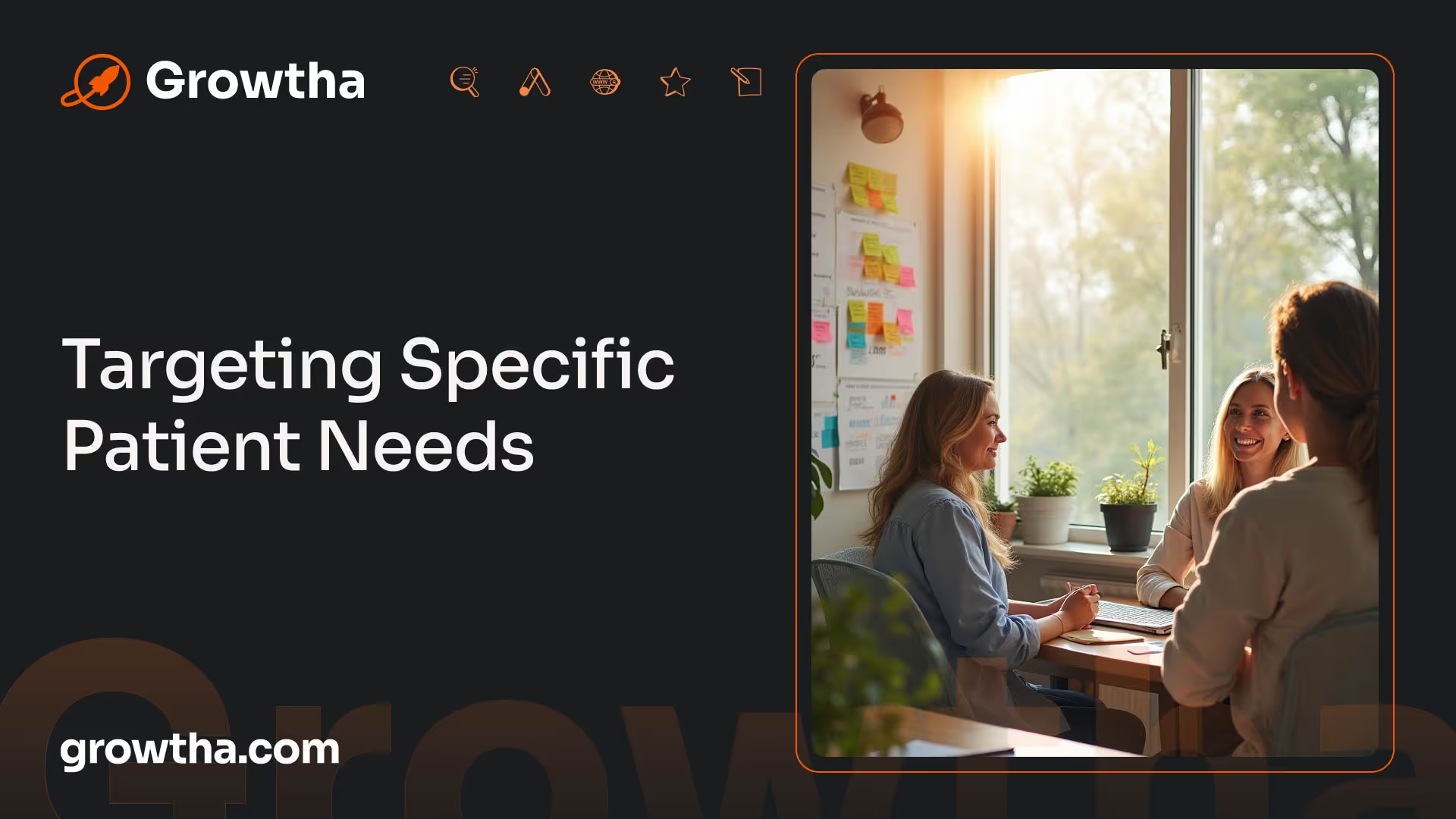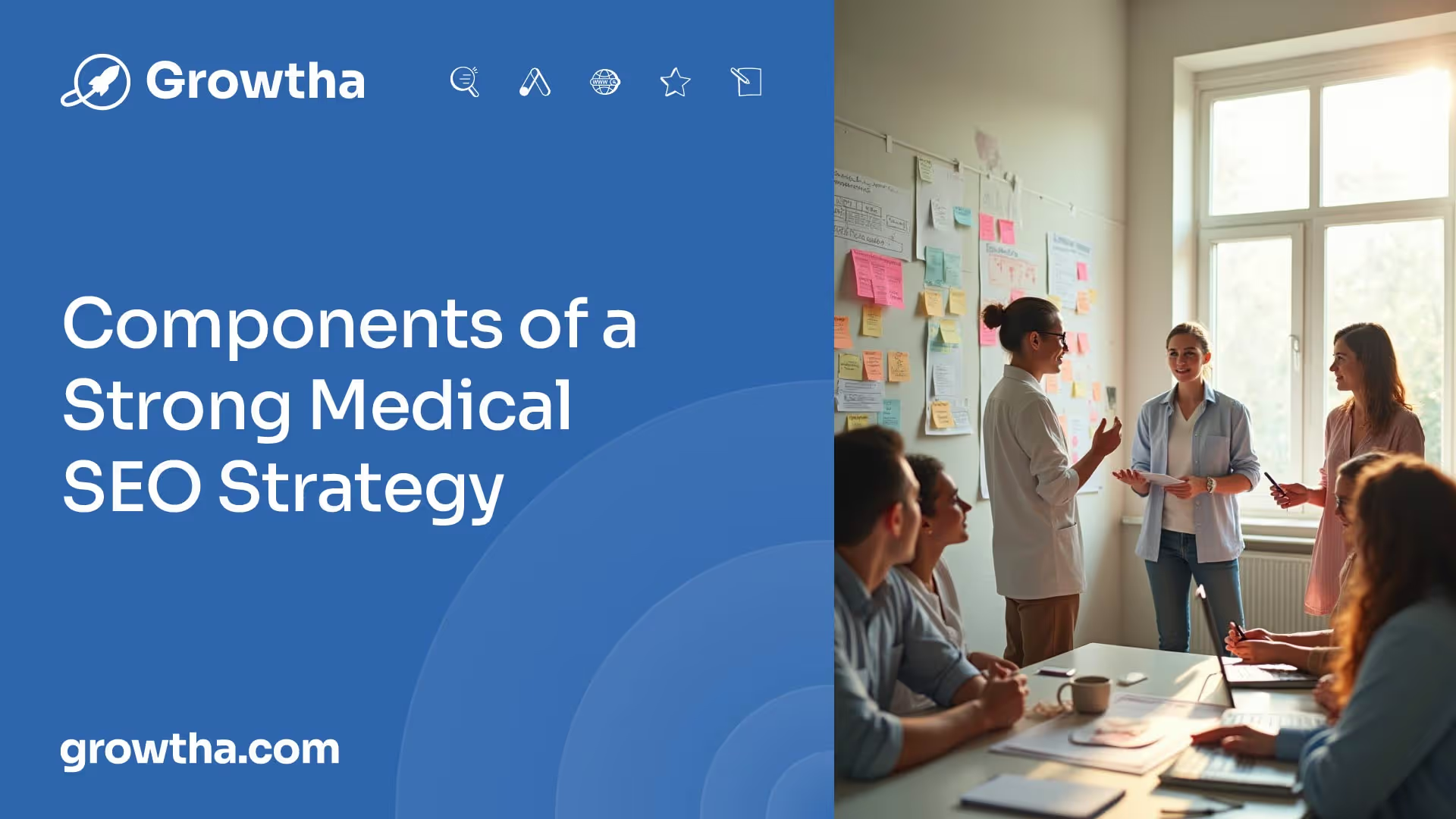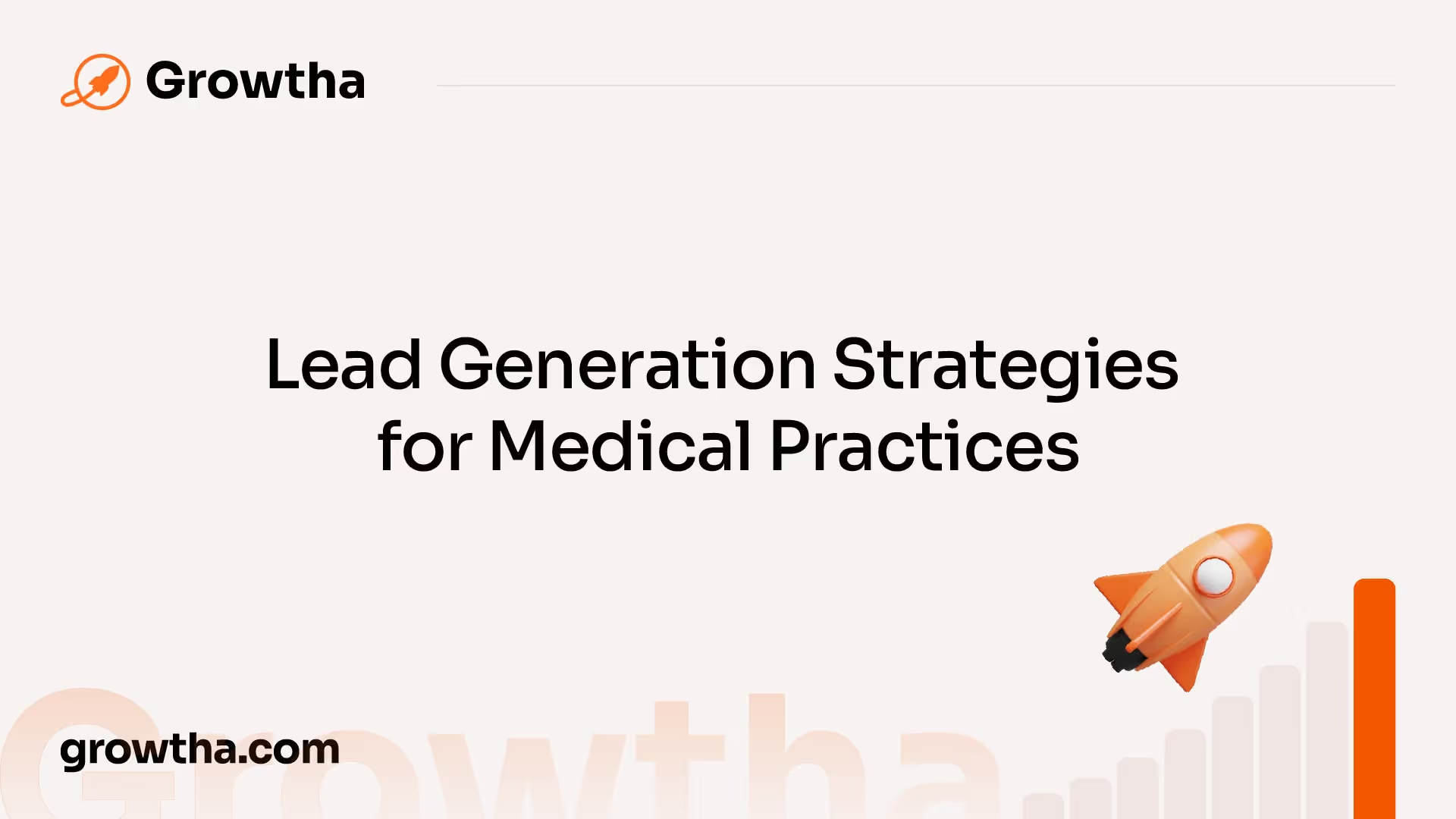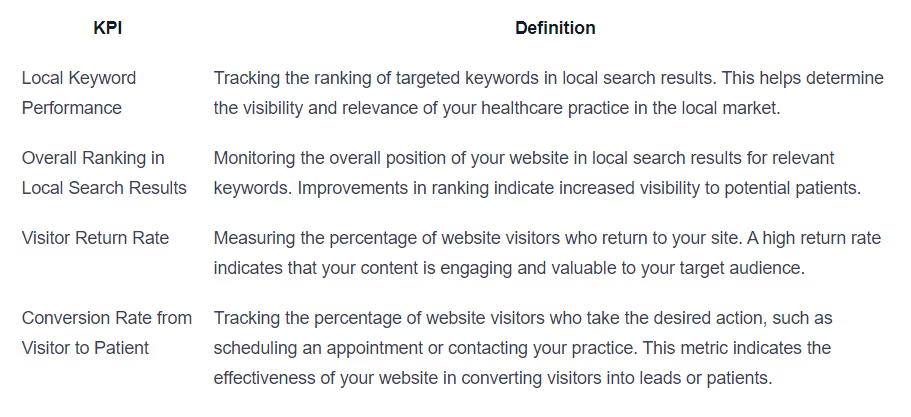How Medical SEO Boosts Lead Generation
According to a study, 80% of patients in the U.S. rely on the internet to find their healthcare providers.


How Medical SEO Boosts Lead Generation
Importance of Medical SEO
In the digital age, medical SEO plays a crucial role in the success of healthcare providers. By implementing effective SEO strategies, healthcare businesses can enhance their visibility online and target specific patient needs. Let's explore these two aspects in more detail.
Healthcare Provider Visibility
According to a study, 80% of patients in the U.S. rely on the internet to find their healthcare providers [1]. This highlights the importance of healthcare providers establishing a strong online presence. Implementing search engine optimization techniques allows healthcare businesses to improve their ranking in search engine results, making it easier for potential patients to find them.
By optimizing their website and content with relevant keywords and phrases, healthcare providers can increase their visibility when patients search for specific medical conditions, treatments, or services. This increased visibility not only attracts more organic traffic to their website but also positions healthcare providers as trusted sources of information in their respective fields.
Targeting Specific Patient Needs

Another crucial aspect of medical SEO is the ability to target specific patient needs. By understanding the search intent of patients, healthcare providers can tailor their content and optimize their website to address those needs. This ensures that when patients search for information related to their medical condition or treatment, they are more likely to find and engage with healthcare providers who can meet their specific requirements.
Targeted medical SEO strategies can include optimizing website pages for specific medical procedures, treatments, or conditions. By creating informative and relevant content around these specific topics, healthcare providers can attract patients who are actively seeking information and services related to those areas.
By targeting specific patient needs through medical SEO, healthcare providers can differentiate themselves from competitors and establish themselves as experts in their field. This builds trust with patients and increases the likelihood of them choosing the healthcare provider for their medical needs.
In summary, medical SEO is essential for healthcare providers to enhance their online visibility and target specific patient needs. By implementing effective SEO strategies, healthcare businesses can attract more organic traffic, establish expertise and authority, and ultimately drive lead generation and patient acquisition.
Components of a Strong Medical SEO Strategy

To effectively boost lead generation in the healthcare industry, it is essential to have a strong medical SEO (Search Engine Optimization) strategy in place. This involves optimizing various components of your online presence to improve visibility and attract potential patients. Two key components of a robust medical SEO strategy are local SEO optimization and off-page SEO activities.
Local SEO Optimization
Local SEO plays a crucial role in guiding patients to the right healthcare providers within their area, making medical practices more visible and accessible to potential patients in their geographical region [2]. With 46% of all Google searches related to seeking local information, optimizing your content with local keywords can enhance visibility in local search results, which is especially important for attracting patients in the immediate geographic area [1].
Implementing a successful local SEO strategy for medical marketing involves several key steps. These include:
- Leveraging Google My Business (GMB): Creating and optimizing a GMB listing is crucial for local SEO. It allows you to provide accurate information about your practice, such as contact details, opening hours, and reviews, making it easier for potential patients to find and connect with you.
- Local and Online Directory Listings: Ensuring your practice is listed accurately in local and online directories helps improve your online visibility. Consistent information across these directories builds trust and credibility with search engines and potential patients.
- Local Content Creation: Developing locally relevant content, such as blog posts or articles, that address the specific healthcare needs and interests of your local community can help improve your local SEO. This content should incorporate local keywords and provide valuable information to engage and attract potential patients.
- Website Optimization: Optimizing your website with local keywords, including in title tags, meta descriptions, headers, and content, helps search engines understand your geographical focus and improves your chances of appearing in relevant local search results.
- Managing Online Reviews: Encouraging satisfied patients to leave positive reviews on platforms such as Google, Yelp, or Healthgrades can significantly impact your local SEO. Positive reviews not only enhance your online reputation but also increase your visibility in search engine results.
Off-Page SEO Activities
In addition to local SEO optimization, off-page SEO activities are essential for improving your medical practice's online visibility and lead generation efforts. Off-page SEO refers to optimizing factors outside of your website that influence search engine rankings and user perception of your practice.
Key off-page SEO activities for medical practices include:
- Creating Quality Content: Developing high-quality and informative content on external platforms such as reputable healthcare websites, guest blogging, or contributing to medical publications can help establish your expertise and credibility in the industry. This can lead to backlinks to your website, which improves search engine rankings.
- Mobile Optimization: With the increasing use of mobile devices, ensuring your website is mobile-friendly is crucial. Google prioritizes mobile-friendly websites in its search results, so optimizing for mobile devices can improve your visibility and user experience.
- Local Backlink Building: Building relationships with local businesses, organizations, and influencers can help generate local backlinks to your website. These backlinks from reputable local sources can improve your website's authority and visibility in local search results.
- Social Media Engagement: Active engagement on social media platforms allows you to connect with your target audience, share valuable content, and promote your services. By building a strong online presence and fostering engagement, you can attract potential patients and improve your overall SEO efforts.
By incorporating local SEO optimization and off-page SEO activities into your medical SEO strategy, you can enhance your online visibility, attract local patients, and generate more leads for your practice. Monitoring the impact of these strategies using tools like Google Search Console, Moz Local, Google Analytics, Semrush, Google Ads Conversion Tracking, and Hotjar can help measure their effectiveness and make necessary improvements [2].
Benefits of SEO in Healthcare Marketing

Implementing a strong SEO strategy in healthcare marketing can bring numerous benefits to medical practices. By optimizing their online presence, healthcare providers can increase their visibility in search engine results, establish expertise and trust, and ultimately generate more leads.
Increased Online Visibility
Utilizing SEO techniques allows healthcare providers to enhance their visibility in search engine results. By optimizing their website and content for relevant keywords and search terms, medical practices can improve their rankings in search engine result pages (SERPs). This increased visibility helps potential patients find and connect with healthcare providers more easily.
With the majority of patients turning to search engines for their healthcare needs, it is crucial for medical practices to appear prominently in search results. By implementing effective SEO strategies, healthcare providers can attract more organic traffic to their websites and increase their chances of acquiring new patients [3].
Establishing Expertise and Trust
In the healthcare industry, establishing expertise and trust is paramount. SEO plays a significant role in building credibility and authority for medical practices [1]. By creating high-quality, informative content that addresses patients' needs and concerns, healthcare providers can position themselves as trusted sources of information.
Content optimized with relevant keywords and structured to meet patients' search intent can help medical practices showcase their expertise. Sharing valuable and accurate medical information not only attracts organic traffic but also instills confidence in potential patients. When healthcare providers consistently deliver authoritative content, they build trust with patients, increasing the likelihood of patient acquisition.
By implementing SEO strategies, medical practices can effectively balance promoting their services with providing valuable information. This approach allows them to establish themselves as reliable sources of healthcare knowledge while simultaneously attracting potential patients to their practice [4].
In summary, a well-executed SEO strategy in healthcare marketing can lead to increased online visibility and improved search engine rankings. By delivering valuable, authoritative content, medical practices can establish their expertise and build trust with potential patients. These benefits contribute to the overall success of the practice by generating more leads and increasing patient inquiries through their website [5].
Lead Generation Strategies for Medical Practices

Generating leads is a critical aspect of any successful medical practice. By implementing effective lead generation strategies, healthcare providers can attract potential patients and convert them into valuable leads. In this section, we will explore two key strategies for lead generation in medical practices: lead-generation landing pages and social media marketing.
Lead-Generation Landing Pages
Lead-generation landing pages serve a specific purpose: to turn website visitors into leads. These pages are designed with a clear call-to-action (CTA) that encourages visitors to take a specific action, such as filling out a form or scheduling an appointment. The ultimate objective is to improve conversion rates by capturing valuable contact information from potential patients.
To create effective lead-generation landing pages, it's important to focus on the following elements:
- Compelling Headline: Grab the attention of visitors with a clear and enticing headline that highlights the benefits of your medical practice or a specific service.
- Engaging Content: Provide concise and persuasive content that communicates the unique value propositions of your practice, addressing the needs and concerns of your target audience.
- Clear Call-to-Action: Place a prominent and visually appealing CTA button that clearly indicates the desired action, such as "Schedule an Appointment" or "Request a Consultation."
- Optimized Form: Keep the form simple and user-friendly, asking for essential information such as name, email address, and phone number. Avoid too many form fields that may deter visitors from completing the form.
- Social Proof: Incorporate patient testimonials or online reviews to instill trust and credibility in your practice.
- Mobile Optimization: Ensure that your landing pages are mobile-friendly, as an increasing number of potential patients use mobile devices to access healthcare information.
Regularly monitor and analyze the performance of your lead-generation landing pages to identify areas for improvement and optimize the conversion rates.
Social Media Marketing for Leads

Social media platforms, including Facebook, Twitter, and LinkedIn, have evolved into legitimate lead-generation channels for medical practices. These platforms allow healthcare providers to engage and connect with their target audience, driving targeted traffic to their practice website.
To effectively leverage social media for lead generation, consider the following strategies:
- Create Engaging Content: Develop compelling content, such as blog posts, articles, and infographics, that educates and informs your audience. Share this content on your social media channels to attract potential patients.
- Promote Special Offers: Use social media to showcase any special offers, discounts, or promotions your practice may be running. Include a strong call-to-action to encourage users to take the next step.
- Engage with Your Audience: Respond promptly to comments, messages, and inquiries on your social media channels. Engage in conversations, provide helpful information, and establish your practice as a trusted source of expertise.
- Paid Advertising: Consider utilizing paid advertising options on social media platforms to target specific demographics and reach a larger audience. This can help drive more targeted traffic to your website and increase lead generation opportunities.
- Encourage Online Reviews: Online patient reviews play a significant role in generating leads and attracting potential patients. Encourage your existing patients to share their feedback through online reviews, as positive reviews can enhance your practice's reputation and credibility.
By implementing these strategies, medical practices can effectively generate leads through social media marketing and expand their patient base.
Lead generation is a continuous process, and it's important to regularly evaluate and refine your strategies to optimize results. Experiment with different tactics, monitor key performance indicators (KPIs), and adapt your approach based on the insights gained. With a strong focus on lead generation, medical practices can enhance their visibility, attract potential patients, and ultimately drive success in today's competitive healthcare landscape.
Key Strategies for Effective Lead Generation
To maximize the potential of medical SEO for lead generation, healthcare providers need to implement key strategies that focus on creating compelling content and utilizing email marketing effectively.
Compelling Content Creation
Creating compelling content is a fundamental component of lead generation in healthcare. By generating and sharing valuable, relevant, and engaging content such as blog posts, articles, videos, and infographics, healthcare providers and organizations can attract and engage potential patients, build their brand, and ultimately generate leads [6].
When developing content, it's important to understand the needs and interests of the target audience. Addressing common healthcare concerns, providing informative resources, and sharing expert insights can establish a healthcare provider as a trusted source of information and expertise. This can help build a relationship of trust and credibility, which is essential for lead generation in the healthcare industry.
Furthermore, optimizing content for search engines is crucial for increasing visibility and driving organic traffic. By incorporating relevant keywords, meta tags, and headers, healthcare providers can improve their search engine rankings and attract qualified leads.
Email Marketing for Lead Generation
Email marketing remains one of the most effective strategies for lead generation in the healthcare industry. Crafting compelling email messages, including attention-grabbing subject lines, can significantly impact the success of lead generation efforts [7].
Through email marketing, healthcare providers can nurture relationships with potential patients, educate them about services, and encourage them to take the desired action. This could involve offering exclusive content, sharing educational resources, providing updates on healthcare advancements, or promoting special offers and discounts.
Segmenting email lists based on patient demographics, interests, or previous interactions allows for targeted and personalized communication. By tailoring messages to specific segments, healthcare providers can deliver content that resonates with each audience, increasing the likelihood of lead conversion.
To optimize email marketing for lead generation, it's essential to track and analyze key metrics such as open rates, click-through rates, and conversions. This data provides insights into the effectiveness of email campaigns, enabling healthcare providers to refine their strategies and improve future lead generation efforts.
By implementing these key strategies, healthcare providers can leverage the power of compelling content creation and effective email marketing to generate leads, nurture relationships, and ultimately grow their patient base.
Monitoring and Measuring SEO Success
As with any marketing strategy, monitoring and measuring the success of your medical SEO efforts is vital to understand the impact and effectiveness of your strategies. By tracking key performance indicators (KPIs) and conversion rates, you can gain valuable insights into the performance of your medical SEO campaign and make data-driven decisions to optimize your lead generation efforts.
Key Performance Indicators (KPIs)
Monitoring the right KPIs is crucial for assessing the success of your medical SEO campaign. Here are some key metrics to consider:

Regular reporting and analysis of these KPIs provide insights into the progress and effectiveness of your medical SEO campaign. It allows you to identify areas of improvement and make data-driven decisions to optimize your strategies.
Tracking Conversion Rates
Conversion rates are an essential metric for measuring the success of your medical SEO efforts. By tracking the percentage of website visitors who convert into leads or patients, you can gauge the effectiveness of your website in generating actionable results. Conversion rate tracking can be done using various tools, such as Google Analytics, which provides valuable insights into user behavior and conversion actions.
To track conversion rates effectively, it's important to define what constitutes a conversion for your healthcare practice. This could include actions like scheduling an appointment, submitting a contact form, or calling your practice. By setting up conversion tracking mechanisms, you can accurately measure and analyze the effectiveness of your medical SEO strategies in generating leads and acquiring new patients.
Remember, monitoring and measuring SEO success is an ongoing process. Regularly reviewing your KPIs and conversion rates allows you to identify trends, spot areas for improvement, and make data-driven decisions to optimize your medical SEO campaign. By continuously refining your strategies based on performance analysis, you can drive success in lead generation and grow your medical practice.
References
[1]: https://www.linkedin.com/pulse/3-core-components-strong-healthcare-seo-strategy-digitalismedical
[2]: https://www.cactusmailing.com/blog/medical-local-seo
[3]: https://www.outranking.io/seo-for-medical-practices/
[4]: https://blog.embertribe.com/seo-agency/how-to-choose-the-right-medical-seo-agency-for-your-practice
[5]: https://wesrom.com/insights/marketing-insights/medical-seo-services/
[6]: https://abmatic.ai/blog/lead-generation-for-healthcare-best-practices
[7]: https://www.practicebuilders.com/blog/10-proven-lead-generation-strategies-for-your-medical-practice/







